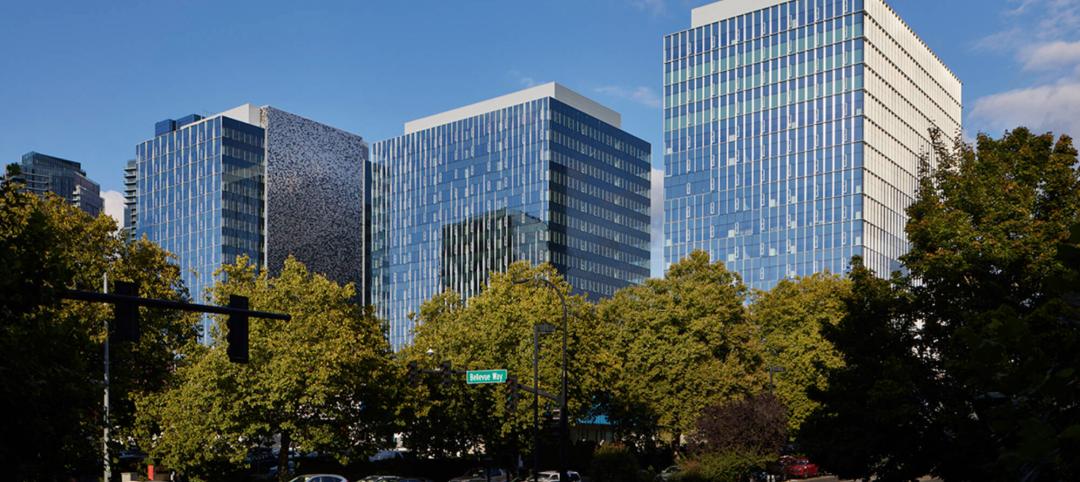The Construction Specifications Institute (CSI) and ICC Evaluation Service, LLC (ICC-ES), today announced they have signed a Memorandum of Understanding (MOU) to strengthen the relationship between CSI’s GreenFormat and the ICC-ES Environmental program.
ICC-ES currently references CSI’s MasterFormat and other formats in all of its evaluation reports. The MOU will add GreenFormat references.
“CSI’s GreenFormat identifies and organizes the sustainable attributes of building products,” said CSI Executive Director and CEO Walter Marlowe, P.E., CSI, CAE. “By collaborating with ICC-ES, it will help increase awareness and use of GreenFormat, particularly with products compliant to the 2012 International Green Construction Code (IgCC), so that professionals who select building products can make informed choices.”
“This MOU recognizes the complementary nature of ICC-ES and CSI’s GreenFormat in the sustainable building sector and demonstrates added value to environmental reports,” said Rob Brooks, Director of ICC-ES Environmental Programs. “While CSI provides a uniform structure for manufacturers to report the sustainable characteristics of their products through GreenFormat, ICC-ES provides evidence that products meet requirements of codes and green building standards.”
Among the agreements included in the MOU:
-
ICC-ES will add GreenFormat’s numbering scheme within new and existing ICC-ES Environmental Evaluation reports (Verification of Attributes Reports™ and Plumbing, Mechanical and Fuel Gas Listings) for environmental attributes.
-
ICC-ES and CSI will work together to maintain the relationship between GreenFormat categories and the questions in the ICC-ES Environmental Evaluation reports as both are updated and add references to new reports.
-
CSI will present ICC-ES Criteria to the GreenFormat task team for consideration as appropriate product evaluation tests within GreenFormat.
In addition, CSI and ICC-ES intend to participate in each other’s technical committees, where applicable.
GreenFormat provides a uniform structure for manufacturers to report the sustainable properties of their products. It helps industry professionals evaluate the green characteristics of building products they are considering for their projects.
The ICC-ES Sustainable Attributes Verification and Evaluation (SAVE) program provides manufacturers with independent verification that their products meet specific sustainability targets defined by today’s codes, standards and green rating systems. The ICC-ES SAVE and PMG Listing programs both evaluate the compliance of products to a subset of GreenFormat attributes. BD+C
Related Stories
AEC Tech Innovation | Oct 8, 2024
New ABC technology report examines how AI can enhance efficiency, innovation
The latest annual technology report from Associated Builders and Contractors delves into how artificial intelligence can enhance efficiency and innovation in the construction sector. The report includes a resource guide, a case study, insight papers, and an essay concerning applied uses for AI planning, development, and execution.
Healthcare Facilities | Oct 8, 2024
Herzog & de Meuron completes Switzerland’s largest children’s hospital
The new University Children’s Hospital Zurich features 114 rooftop patient rooms designed like wooden cottages with their own roofs. The project also includes a research and teaching facility.
Mixed-Use | Oct 7, 2024
New mixed-use tower by Studio Gang completes first phase of San Francisco waterfront redevelopment
Construction was recently completed on Verde, a new mixed-use tower along the San Francisco waterfront, marking the end of the first phase of the Mission Rock development. Verde is the fourth and final building of phase one of the 28-acre project that will be constructed in several phases guided by design principles developed by a design cohort led by Studio Gang.
Brick and Masonry | Oct 7, 2024
A journey through masonry reclad litigation
This blog post by Walter P Moore's Mallory Buckley, RRO, PE, BECxP + CxA+BE, and Bob Hancock, MBA, JD, of Munsch Hardt Kopf & Harr PC, explains the importance of documentation, correspondence between parties, and supporting the claims for a Plaintiff-party, while facilitating continuous use of the facility, on construction litigation projects.
Glass and Glazing | Oct 7, 2024
Pattern language: An exploration of digital printing on architectural glazing
Architectural Glazing has long been an important expressive tool which, when selected and detailed thoughtfully, can contribute to the successful transformation of architectural concepts to reality.
University Buildings | Oct 4, 2024
Renovations are raising higher education campuses to modern standards
AEC higher ed Giants report working on a variety of building types, from performing arts centers and libraries to business schools. Hybrid learning is seemingly here to stay. And where possible, these projects address wellness and mental health concerns.
AEC Tech | Oct 3, 2024
4 ways AI impacts building design beyond dramatic imagery
Kristen Forward, Design Technology Futures Leader, NBBJ, shows four ways the firm is using AI to generate value for its clients.
Laboratories | Oct 2, 2024
Trends in scientific research environments: Q&A with Flad's Matt McCord
As part of an ongoing series, Matt McCord, AIA, NCARB, LEED AP BD+C, Associate Principal with Flad Architects, discusses the future of the scientific workplace.
Museums | Oct 1, 2024
UT Dallas opens Morphosis-designed Crow Museum of Asian Art
In Richardson, Tex., the University of Texas at Dallas has opened a second location for the Crow Museum of Asian Art—the first of multiple buildings that will be part of a 12-acre cultural district. When completed, the arts and performance complex, called the Edith and Peter O’Donnell Jr. Athenaeum, will include two museums, a performance hall and music building, a grand plaza, and a dedicated parking structure on the Richardson campus.
Data Centers | Oct 1, 2024
10 biggest impacts to the data center market in 2024–2025
While AI sends the data center market into the stratosphere, the sector’s accelerated growth remains impacted by speed-to-market demands, supply chain issues, and design innovation necessities.

















